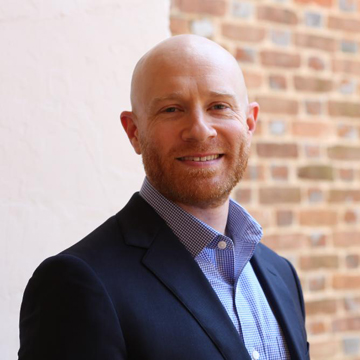A research grant awarded by The Thomas F. and Kate Miller Jeffress Memorial Trust will empower Indigenous communities in Virginia to make independent decisions about food production on their lands.
Grant recipients Troy Wiipongwii and Zach Conrad — both affiliates of William & Mary’s Global Research Institute — will develop computational tools that identify lands for sustainable food production, estimate how much food can be produced in those areas and quantify how many people can be fed a healthy diet from sustainable Indigenous food systems. Conrad is an assistant professor of kinesiology at William & Mary.
The $600,000 grant will support the work over a three-year period.
The researchers will ensure the tools account for cultural and ecological interests of the following state- and federally-recognized tribes, which include: Mattaponi, Cheroenhaka (Nottoway), Nottoway, Patawomeck, Pamunkey, Chickahominy, Eastern Chickahominy, Rappahannock, Upper Mattaponi, Nansemond, and Monacan Indian Nation.

Wiipongwii, who is of Chickahominy descent, said the tools will support the tribes’ diverse cultural and ecological conditions. But across low-income communities in urban settings, he said, there is a common challenge: food deserts, or areas where healthy food runs scarce.
“I was adopted, and when I reconnected with my family, I noticed that our health was disconnected based on how I was raised versus how some of my family were raised,” said Wiipongwii, a GRI researcher. “This isn’t exclusively the case, because there are very many upwardly mobile, educated, health-conscious Indigenous people, but it was a sharp contrast between the two. This really made me think more about what my role could be and what it could mean to help support the community.”
In response to these observed inequities, his current work streamlines health processes while maintaining Indigenous knowledge systems and traditions. When the United States began formally acknowledging tribes, many populations in Virginia were not recognized due to the “paper genocide” committed by Walter Plecker, the state’s first registrar. Plecker’s efforts resulted in the Racial Integrity Act of 1924, which criminalized interracial marriage and recorded births by race — with the only options being “white” and “colored.” Paper genocide occurs when a group of people is made to disappear on paper, according to National Geographic.
Subsequently, “these communities did not have access to resources that could continue to maintain traditional ways of life, which forced many members — which is what happened to some of my family — to go into urban settings,” Wiipongwii said.
Partnering with the Baltimore American Indian Center, which serves approximately 30,000 Native Americans in Virginia and Maryland, will allow the researchers to build a network of food security across engaged populations, said Conrad. While developing and implementing their tools, Conrad and Wiipongwii will also work with Native American Lifelines (NAL), which promotes health resilience in Urban Indian communities. NAL is classified under a federal mandate that prevents it from purchasing and redistributing foods, although it has the resources to serve as a food pantry. The researchers hope their partnership can respond to this complexity by initiating a supply chain that supports food deserts.
Incorporating direct guidance from tribal leaders will help the project address specific or unforeseen concerns, Conrad said.

“It’s really that on-the-ground knowledge that we need infused into this,” Conrad said. “I anticipate us getting a lot of really useful feedback from the community on, for example, ‘This land you’ve identified is not actually what it looks like on paper. It’s actually used for a different purpose,’ or, ‘although that land you’ve identified is suitable to produce crops, it’s dislocated from this other land that’s even better for farming.’”
The researchers will also consult with a Tribal Advisory Council composed of at least one leader from each tribe, and will facilitate knowledge-sharing.
“We have visits planned on location for each of the tribes and community partners where we can present our research plan and findings, but most critically to get feedback from the community about where we should really focus our efforts, if we’re heading in the right direction,” Conrad said. “There’s this direct top-down approach where we consult directly with the Tribal Advisory Council, but then also a bottom-up approach where we consult directly with community members through organized community conversations. What’s really important is to collaborate with these communities in multiple ways rather than just to conduct our research and present it to them.”
Though these insights will continue to inform the researchers’ approach, Wiipongwii’s aunt has already said this project supports her community’s interests.
“I am so proud that my nephew has dedicated his research career to serving our community needs,” said Jessie Crewe, sister of Wiipongwii’s late paternal grandfather and a member of the Chickahominy tribe.
Beyond supplying Indigenous populations with critical information and tools, this research will enhance GRI, Wiipongwii said. This project aims to cultivate a more inclusive view of the international relations discipline, he said.
“We tend to focus on the Global South, but not on where the Global South exists within the United States,” he said. “Collaborating with Indigenous communities in the United States expands GRI’s scope.”
By responding to community successes and vulnerabilities, Wiipongwii and Conrad hope to make productive social impacts.
“We’re supporting what they already do well but streamlining it and just adding additional components,” Wiipongwii said. “That’s what academics should be doing.”

